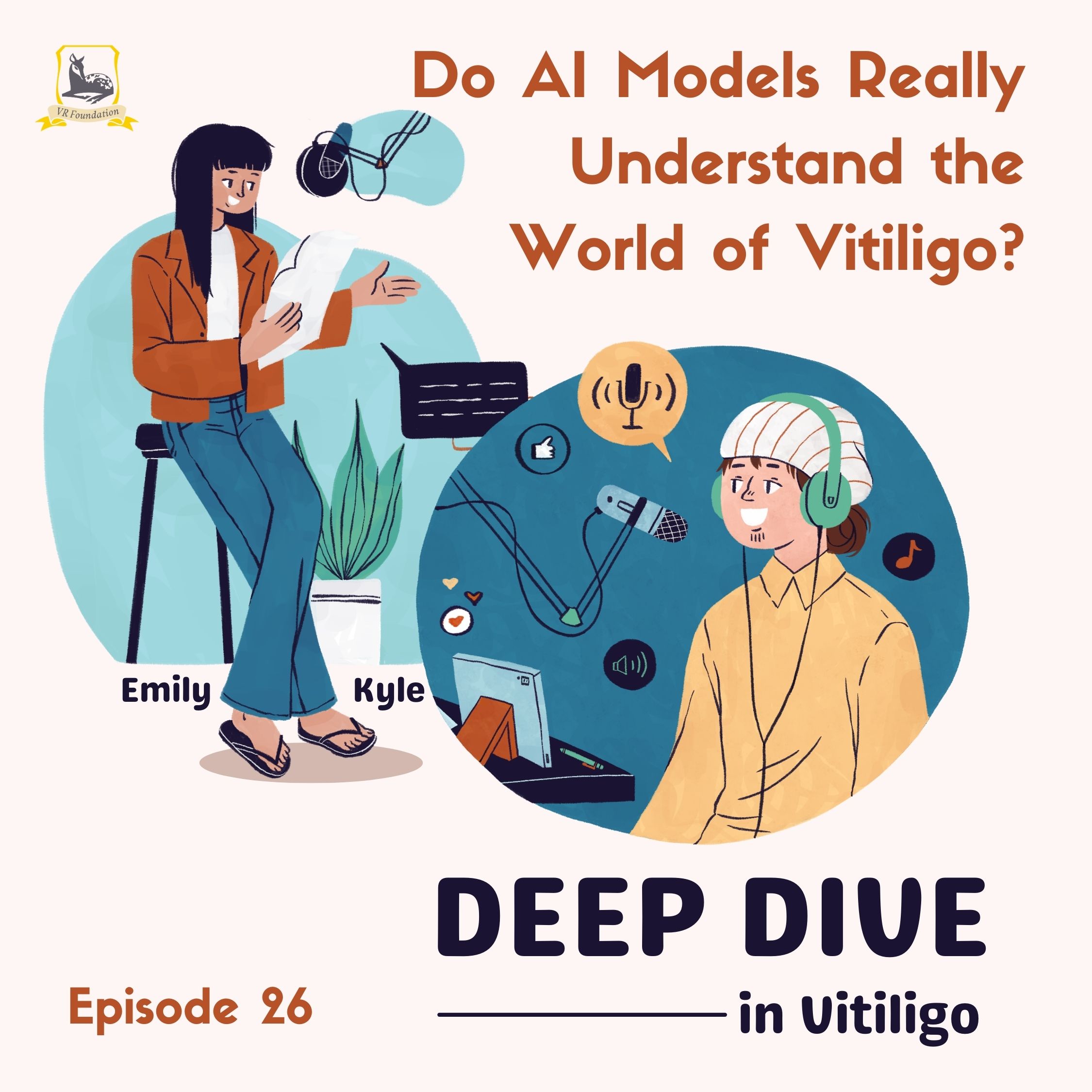Our work is entirely funded by private donations – we receive no money from government. Your money will help us continue funding research into vitiligo and supporting people affected by the condition.
Podcast
The Great AI Debate: Do AI Models Truly ‘Get’ It? (Ep. 26)
Do large language models like ChatGPT or Deep Seek actually understand the world, or are they just really good at faking it?
In this episode, we dig into the debate: are LLMs building genuine “world models” or just recycling patterns from massive datasets? We’ll explore real-world AI fails, like the skin lesion detector that linked rulers to cancer, and what that means for AI in diagnosing conditions like vitiligo.
Tune in to get the real story behind AI’s so-called “understanding.”
Suggested reading:
- Do AI Models Really Understand the World of Vitiligo?
- Cheaper AI, Higher Stakes: What Startups and Big Pharma Must Know

FAQOther Questions
- Isn't it just a cosmetic disorder?
Contrary to popular belief, vitiligo is not merely a cosmetic issue but a complex autoimmune disorder that affects the body’s largest organ—along with other vital systems—and is...
- Is it possible to stop the progression of vitiligo?
While it's not always possible to quickly stop vitiligo progression, there are some treatments that can help slow or halt the spread of the condition in many cases: Corticoster...
- Who is prone to vitiligo?
Vitiligo can affect anyone, regardless of gender, age, or race. Vitiligo prevalence is between 0.76% and 1.11% of the U.S. population, including around 40% of those with the con...
Though it is not always easy to treat vitiligo, there is much to be gained by clearly understanding the diagnosis, the future implications, treatment options and their outcomes.
Many people deal with vitiligo while remaining in the public eye, maintaining a positive outlook, and having a successful career.
Copyright (C) Bodolóczki JúliaBy taking a little time to fill in the anonymous questionnaire, you can help researchers better understand and fight vitiligo.